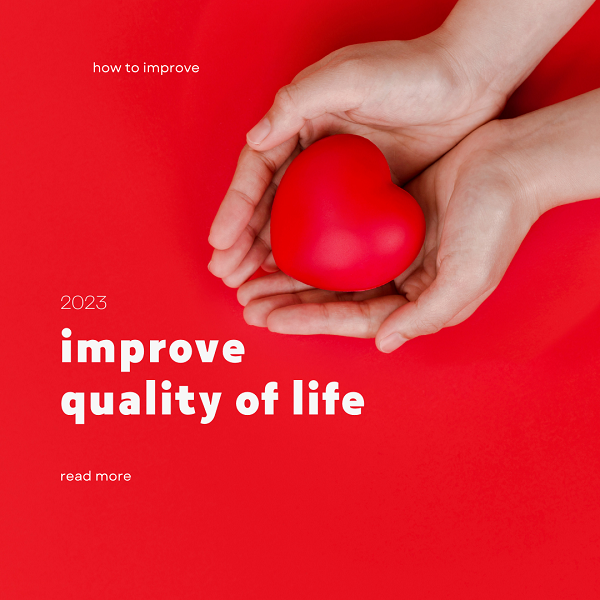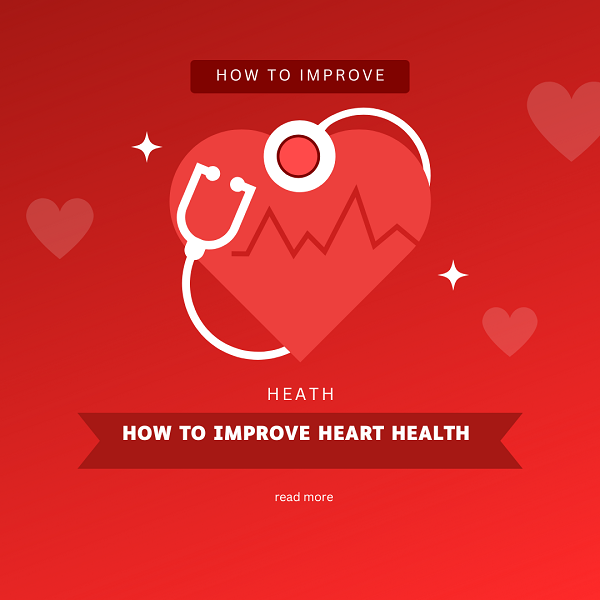There is so much we can do to improve heart health and give it more importance, and protecting the body’s most important muscle is extremely important. Here’s what can be done to improve heart health.
What is cardiovascular disease?
Cardiovascular disease is used to describe health problems associated with the heart itself and associated blood vessels. The term cardiovascular disease includes:
Coronary heart disease: It is a condition in which the heart arteries are narrowed due to atherosclerosis, which is the buildup of fatty plaque on the artery walls. A stroke or heart attack can occur if a blood clot develops and becomes trapped in narrowed arteries and completely blocks blood flow.
Stroke: The most common are ischemic strokes, usually caused by blood clots blocking a blood vessel to the brain, and hemorrhagic strokes, which are caused by high blood pressure bursting a blood vessel in the brain.
Heart attack: Occurs when blood flow to and from the heart is cut off or restricted.
Heart failure: Your heart is not pumping enough blood and oxygen to your body to stay healthy. Despite its name, it does not mean that your heart has stopped beating, but that it is not working at its best.
Recommendations for Protecting Heart Health
Eat Healthy to improve heart health
According to studies, poor in saturated fat; A diet rich in fiber, antioxidants, monounsaturated fat and fish has a positive effect on cardiovascular diseases.
Studies investigating the effect of diet on heart health have shown that aggressive fat restrictions reduce the death rate by 30-60 percent.
What to do?
Take care to eat a diet rich in fresh vegetables, fruits, fish and fiber foods.
Your total fat consumption should not exceed 30 percent of your diet.
If your triglyceride level is high, quit alcohol, if not, limit it.
Limit your daily salt intake to 5 grams as well.
Avoid These Foods!
- Shellfish
- Full-fat meats
- Fatty foods
- Deep frying and roasting,
- Prepared foods
- Alcoholic beverages
- instant fruit juices
- soft drinks
2. Take action

Exercising strengthens your heart and helps reduce blood pressure. While any exercise is good for your heart, aerobic exercises tend to be better for your heart, as they make it harder to pump. Blood throughout your body. Whether you do at least 30 minutes of physical activity a day, whether it’s walking, jogging, swimming, cycling, or even doing housework.
3. Quit smoking
Quitting smoking isn’t easy, but one of the top reasons for quitting is that it can increase your risk of developing heart disease. Smoking can damage the lining of your heart arteries and reduce the amount. Oxygen is in your blood.
4. Avoid alcohol
Alcohol can raise your blood pressure. Limit your alcohol intake to one drink per day or stop altogether to minimize risks to your health.
5. Lose weight
If you’re overweight, your heart has to work extra hard to pump blood around your body, which can raise blood pressure. Losing weight can help lower your blood cholesterol and blood sugar levels.
6. Manage stress
It causes your body to react by releasing hormones like stress. Cortisol and adrenaline can wreak havoc on your heart. Here are some strategies for managing stress:
- Stay connected with the people you love.
- Take some time to relax each day.
- Do yoga or meditation to practice mindfulness.
- Let go of the things you can’t control.
7. Get enough sleep
Lack of sleep can increase your risk of high blood pressure. Try to get at least 7–8 hours of sleep every night. If you have sleep apnea or any other sleep-related disorder, seek treatment immediately and take all prescribed medications to make sure your body is meeting the need for rest.
Here are 4 easy ways to improve our heart health and quality of life:

Longer working hours, higher stress levels, unhealthy diet, less exercise etc. It harms people’s health, especially heart health. Here are 4 easy ways to improve our heart health and quality of life!
1. Start by taking more breaks for mindfulness during the workday, this will help you de-stress and relax.
2. Reduce time spent leaning over a desk or lying on the couch – try walking more indoors or some quick chair exercises.
3. When it comes to our diet, it’s not just about the number of calories we consume, it’s about eating the right nutritious foods. For example, simply reducing fat intake is not enough to be healthy. Choose the right cooking oil, try blended oils instead of moonseed oils, as these can give you the right balance of monounsaturated and polyunsaturated fatty acids needed for complete nutrition.
4. Finally, get regular heart checks to detect any problems sooner.
These simple steps can help you live longer and disease-free. So invest in your heart health now and get that extra quality hour you can spend on everything you love.
How can heart health be protected?
To protect heart health:
- Review your diet to make sure you have a healthy and balanced diet.
- Work to reach and maintain a healthier weight.
- Stay physically active.
- Do not smoke.
- Do not drink excessive alcohol.
FAQ
YES! Many cardiovascular problems can be prevented. Making changes to your daily habits, such as eating a healthier diet, achieving and maintaining a healthier weight, and staying physically active can help minimize your risk of cardiovascular disease. In addition, not smoking and reducing excessive alcohol consumption may also help minimize your risk of cardiovascular disease.
Yes, but you should also try to stay at a healthier weight after losing the extra pounds. In the long run, a lifestyle change that leads to weight loss and healthier habits can help improve cardiovascular function and reduce the risk of heart problems.
Many people who have an unhealthy diet are at higher risk for conditions such as high blood pressure, type 2 diabetes, and high cholesterol than people who have a healthier diet. These are all risk factors for cardiovascular disease. Many people with these conditions also live with another risk factor, overweight or obesity

